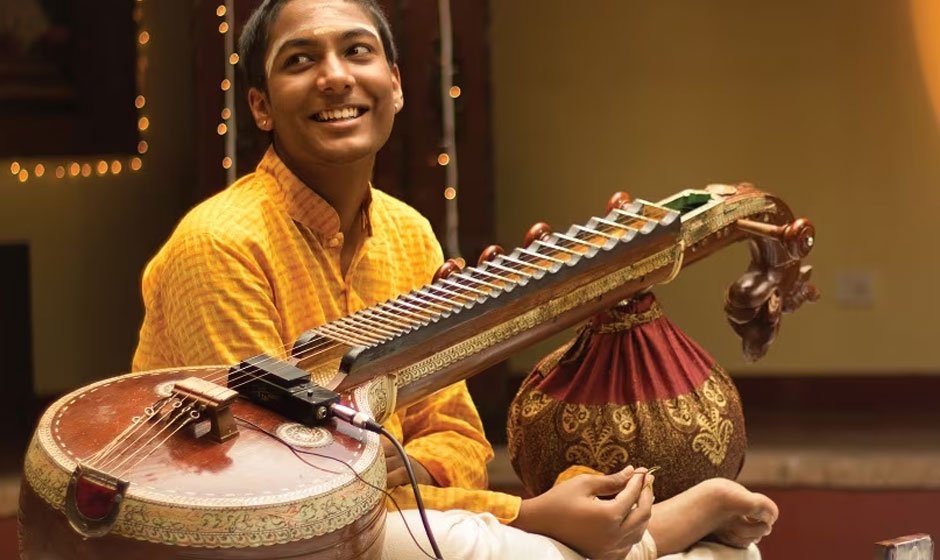The Keys to Becoming an Expert in Hindustani Classical Voice

Becoming an expert in Hindustani classical vocal music is a deeply rewarding journey that combines dedication, passion, and practice. This ancient tradition includes learning intricate melodies and rhythms. It offers a rich sound that can be both challenging and fulfilling. Here’s how you can master this beautiful art form.
Importance of a Guru
If you are passionate about singing and aim to excel in this genre, the journey begins with enrolling in Hindustani classical vocal classes. Hindustani classical music is an intricate and ancient art form that demands both dedication and a deep understanding of its fundamentals. It involves mastering Swaras (notes), Ragas (melodic frameworks), and Taalas (rhythmic cycles).
One cannot overemphasize the importance of having a knowledgeable guru. A guru teaches you the technical aspects of Hindustani music and imparts the nuances and emotional depth required to perform Hindustani classical music. Regular one-on-one sessions with your guru can significantly accelerate your learning process, providing personalized feedback and guidance.
Rigorous Riyaz (Practice)
Riyaz, or dedicated practice, is the foundation of mastering the Hindustani classical voice. Through consistent and rigorous practice, one can internalize the intricate patterns of ragas and develop control over voice modulation, breath control, and tonal quality. Aim to practice daily, preferably in the early hours of the morning when the mind is fresh and the environment is quiet.
Developing Voice Modulation and Control
Voice modulation and control are crucial in delivering the emotional essence of a raga. This can be achieved through various exercises, such as Alankars (patterns of notes), Paltas (note sequences), and Taan patterns (fast melodic runs). Practicing these diligently helps one gain agility and precision in voice movements.
Deepening Understanding of Ragas and Taals
To become an expert, one must delve deeply into the study of ragas and taals. Each raga has its unique mood, time of performance, and specific notes that need to be emphasized. Similarly, understanding the different taals, their beats, and how to maintain the rhythm while performing is essential. Regular listening to performances by maestros can provide great insights into the practical application of these concepts.
Understanding the Cultural Context
Hindustani classical music is deeply rooted in Indian culture and history. Understanding its cultural and historical context can enhance your appreciation and performance. Learning about the stories behind the ragas, the lives of great composers, and the evolution of this art form can provide a deeper connection to your practice.
Incorporating Modern Techniques
While maintaining traditional practices is important, incorporating modern techniques and tools can also be beneficial. Using apps for tuning, rhythm tracking, and recording can provide additional support to your learning process. Online resources, tutorials, and forums can also offer valuable insights and tips from a global community of learners and experts.
Vocal Health and Maintenance
Maintaining vocal health is very important for any singer. Hydrate well, avoid strain, and practice proper breathing techniques to ensure your voice remains in optimal condition. Regular vocal exercises and warm-ups can also prevent strain and enhance vocal longevity.
Engaging with the Musical Community
Engaging with a group of fellow enthusiasts can be incredibly motivating. Join music clubs, participate in workshops, and attend concerts to stay inspired and connected. Learning from peers in your Hindustani classical vocal classes and sharing experiences can provide new perspectives and keep you motivated.
Tips for Effective Learning
- Set Clear Goals: Define what you want to achieve in specific periods. This will help you measure your progress.
- Regular Assessment: Self-assessment and feedback from your guru are vital to track your improvements and identify areas needing attention.
- Performing in Front of an Audience: Start with small gatherings or informal sessions. Performing helps build confidence and understanding of the dynamics of a live presentation.
- Recording Your Practice Sessions: This allows you to critically analyze your singing and make necessary adjustments.
Becoming an expert in Hindustani classical voice is a journey that demands dedication, patience, and a deep love for music. By building a strong foundation and regularly practicing, you can steadily progress towards mastery. Remember, every expert was once a beginner. With persistence and passion, you, too, can achieve excellence in this beautiful art form.



